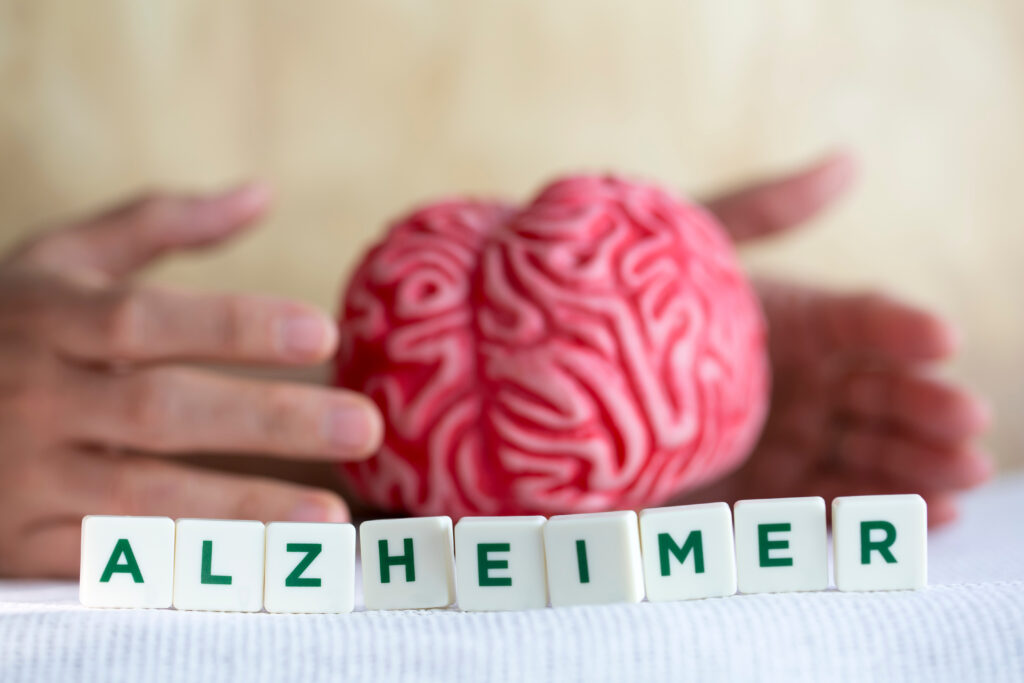**The Impact of Alzheimer’s on Mental Health and Well-being**
Alzheimer’s disease is a condition that affects not only the brain but also the mental health and well-being of those who have it. This article will explore how Alzheimer’s impacts mental health and what it means for the people living with the disease.
### Memory Loss and Cognitive Decline
One of the first symptoms of Alzheimer’s is memory loss. People with Alzheimer’s may forget recent events, learn new information, or even remember familiar tasks. This memory loss can disrupt daily life, making it hard to perform even simple tasks like cooking or managing finances. As the disease progresses, cognitive decline worsens, affecting not just memory but also executive functions like planning and problem-solving[2][5].
### Behavioral and Psychological Symptoms
In addition to cognitive decline, Alzheimer’s often brings about behavioral and psychological symptoms. These can include depression, anxiety, agitation, and apathy. Depression is particularly common, with many people experiencing feelings of sadness, hopelessness, and loss of interest in activities they once enjoyed[4][5]. Anxiety and agitation can lead to irritability and emotional lability, causing outbursts of unpremeditated aggression or resistance to caregiving[5].
### Impact on Mental Health
The combination of cognitive decline and behavioral symptoms can significantly impact mental health. People with Alzheimer’s may feel frustrated, anxious, or depressed as they struggle to remember things or perform tasks. Apathy, which is often persistent throughout the disease, can lead to withdrawal from social activities and a decrease in overall well-being[3][5].
### Caregiver Stress
Caregivers also experience significant stress when caring for someone with Alzheimer’s. The behavioral changes and cognitive decline can create a challenging environment, leading to stress and emotional strain. Sundowning, which is a phenomenon where patients become more agitated in the late afternoon or evening, can be particularly challenging for caregivers[5].
### Importance of Early Diagnosis
Early diagnosis of Alzheimer’s is crucial for managing its impact on mental health. Detailed neuropsychological testing can reveal mild cognitive difficulties years before a definitive diagnosis is made. Early intervention can help manage symptoms and improve the quality of life for both the patient and their caregivers[5].
### Support and Care
Support and care are essential for both patients and caregivers. This includes not only medical treatment but also emotional support. Family members and caregivers can benefit from counseling and support groups to manage their own stress and emotional well-being. Additionally, creating a supportive environment with familiar routines and activities can help reduce agitation and improve overall well-being[3][4].
### Conclusion
Alzheimer’s disease has a profound impact on mental health and well-being. The combination of cognitive decline and behavioral symptoms can lead to significant emotional distress for both patients and caregivers. Early diagnosis, support, and care are essential for managing these impacts and improving the quality of life for those affected by Alzheimer’s.
By understanding the effects of Alzheimer’s on mental health, we can better support those living with the disease and their caregivers. This includes providing emotional support, managing symptoms, and creating a supportive environment that promotes well-being and reduces stress.


